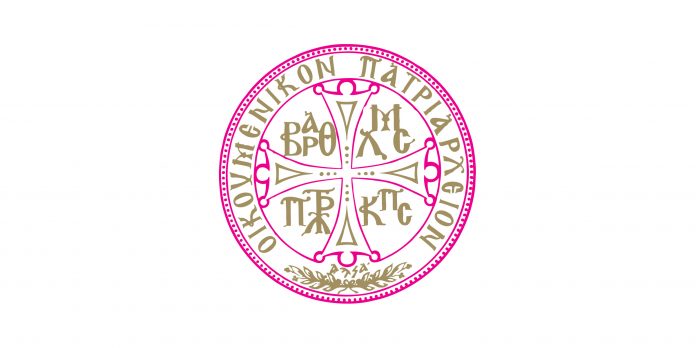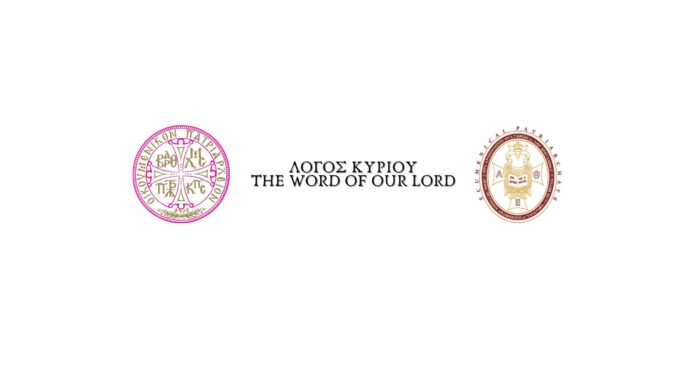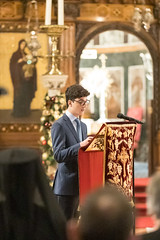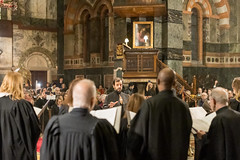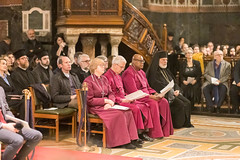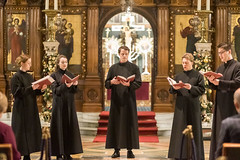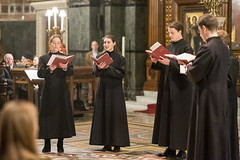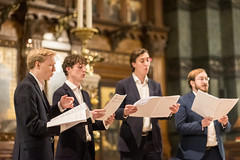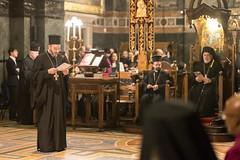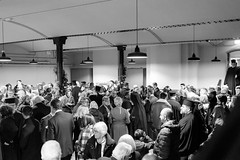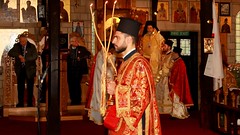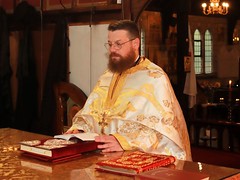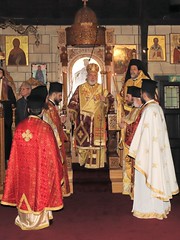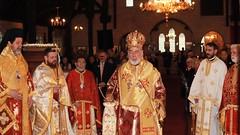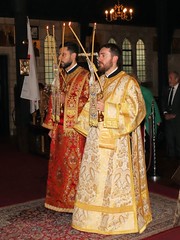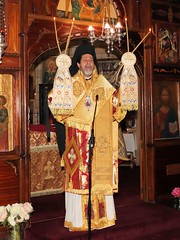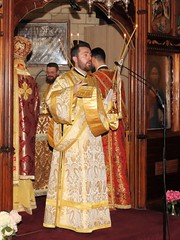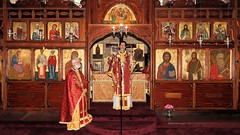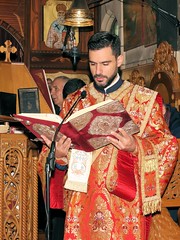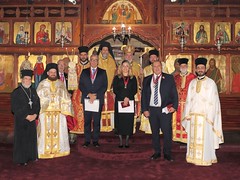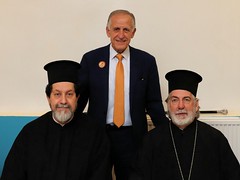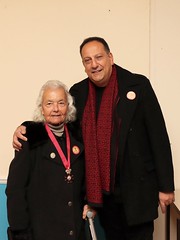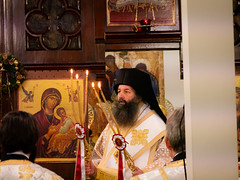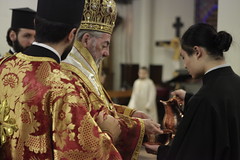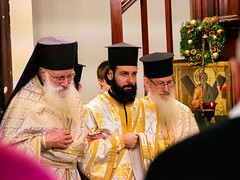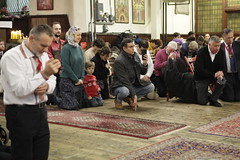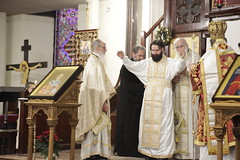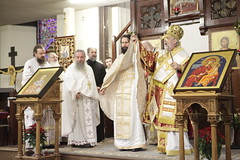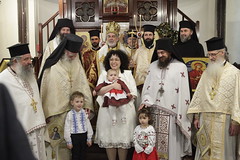+ B A R T H O L O M E W
By God’s Mercy, Archbishop of Constantinople-New Rome
and Ecumenical Patriarch to All the Plenitude of the Church
Grace, Mercy, and Peace from the Saviour Christ Born in Bethlehem
Most honorable brother hierarchs,
Beloved children in the Lord,
With the grace of God, we are once again this year celebrating in chant, hymn, and spiritual song the Nativity according to the flesh of the pre-eternal Son and Word of God, namely the manifestation of the mystery of God and humankind. According to St. Nicholas Cabasilas, what occurs in the Divine Liturgy is “the mystagogy of the Lord’s incarnation,” while its introductory acclamation “Blessed is the Kingdom of the Father, Son, and Holy Spirit” is evidence “that it is through the Lord’s incarnation that people first learned that God is three persons.”[1] The same saintly Father proclaims that our Lord and Savior Jesus Christ was the first and only to demonstrate the authentic and perfect human being, concerning His ethos, life, and everything else.”[2]
The assumption of human nature in the person of the Son and Word of God, along with the opening of the way of human deification through grace, add unsurpassable value to humankind. Forgetting this truth leads to the diminishment of respect for the human person. The denial of the supreme destiny of human beings does not only liberate them, but also leads to diverse reductions and divisions. Without being conscious of their divine origin and their hope for eternity, humans struggle to remain human and are unable to handle the contradictions of the “human condition.”
The Christian perception of human existence provides a solution to problems created by violence, war, and injustice in our world. Respect for the human person, peace, and justice are gifts from God; however, establishing the peace that comes from Christ demands the participation and cooperation of human beings. The Christian view on the struggle for peace lies in the words of Christ our Savior, who proclaims peace, addressing His disciples with the greeting “Peace be with you” and encouraging us to love our enemies [3]. The revelation in Christ is called the “gospel of peace.”[4]
This means that, for us Christians, the way to peace is through peace and that non-violence, dialogue, love, forgiveness, and reconciliation have priority before other forms of resolving differences. The theology of peace is clearly described in the Ecumenical Patriarchate’s document For the Life of the World: Toward a Social Ethos of the Orthodox Church (2020):
“Nothing is more contrary to God’s will for His creatures fashioned in His image and likeness than violence one against another . . . We may justly say that violence is sin par excellence. It is the perfect contradiction of our created nature and our supernatural vocation to seek union in love with God and our neighbour. . . Peace is a real revelation of the still deeper reality of creation as God intends it and as God fashioned it in his eternal counsels.”[5]
Peace cannot be taken for granted; it is not self-evident. It is an obligation, an achievement, and an incessant struggle to preserve it. There are no automatic solutions or permanent recipes. In the face of ongoing threats to peace, we need to have vigilance and willingness to resolve problems through dialogue. The great heroes of politics are the champions of peace. As for us, we continue to underline the peacemaking role of religion. This is during a time when religions are criticized for nurturing fanaticism and violence “in the name of God” instead of being forces of peace, solidarity, and reconciliation. However, this indicates an alienation of religious faith and not an integral part of it. Genuine faith in God is the harshest critic of religious fanaticism. Religions are the natural allies of all human beings who strive for peace, justice, and the preservation of creation from human destruction.
This year, the world honours the 75th anniversary of the Universal Declaration of Human Rights (December 10, 1948), constituting a summary of fundamental humanitarian ideals and values, “the shared standard, to which all peoples and all nations should aim.” Human rights, whose central point of focus includes the protection of human dignity with its individual, social, cultural, economic, and ecological conditions, are only understood in their original dynamics if they are acknowledged as the basis and criterion of global peace, associating it with freedom and justice. In this sense, the future of human rights and peace is also linked to the contribution of religions in the matter of respecting them and making them a reality.
With these thoughts and festive sentiments, in full conviction that the life of the Church in itself comprises resistance against inhumanity, wherever such inhumanity arises, we invite all of you to the good fight of constructing a culture of peace and solidarity, where people will see in the face of their fellow human beings a brother or sister and a friend, rather than a threat and enemy. Moreover, we remind you all, dear brother Hierarchs and children, that Christmas is a time of self-consciousness and thanksgiving, of the revelation of the difference between the God-man and “man-god,” of the realization of the “great miracle” of freedom in Christ and of the healing of the “great wound” of alienation from God. Finally, we kneel respectfully before Mary, the Mother of God, who bears in her arms the incarnate Word, and we convey to you the blessing of the Mother Holy Great Church of Christ, wishing you an auspicious, healthy, fruitful, peaceful, and joyous new year of the Lord’s favour.
Christmas 2023
+ Bartholomew of Constantinople
Your fervent supplicant of all before God
1. On the Divine Liturgy XII, PG 150.392D.
2. On the Life of Christ VI, PG 150.680C.
3. Cf. Mt. 5:44
4. Eph. 6:44
5. § 42, 43 and 44.

